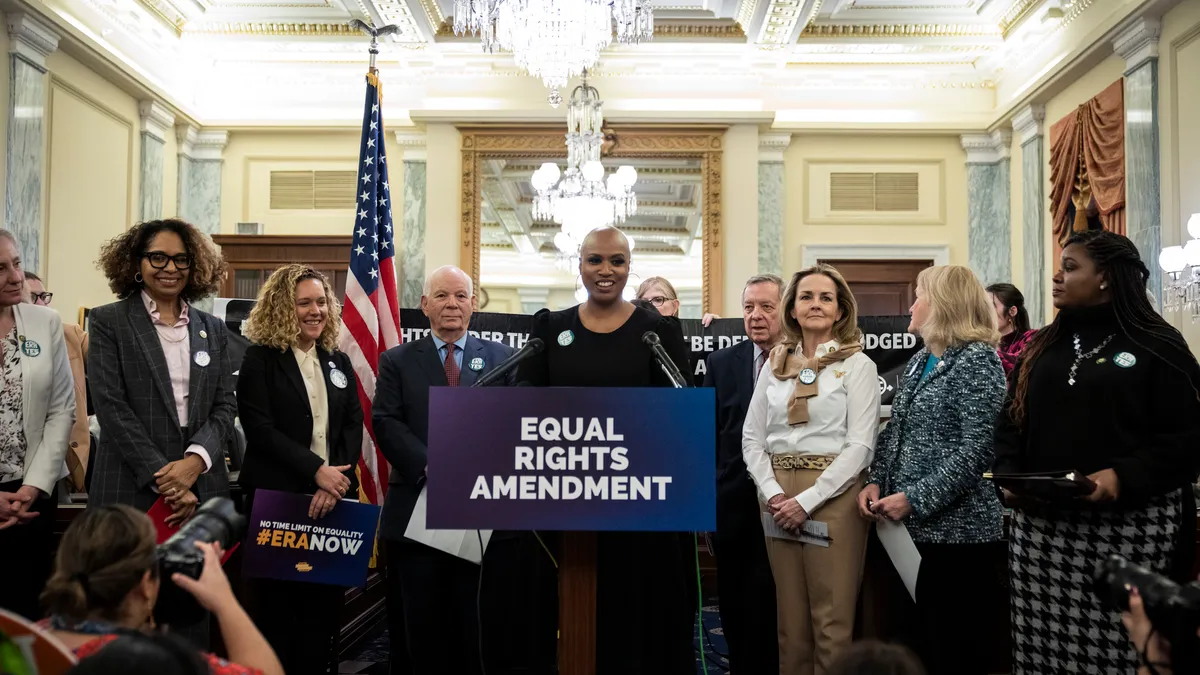The U.S. Senate on Thursday voted 51-47 against passing a resolution that would have made the Equal Rights Amendment part of the U.S. Constitution.
The Equal Rights Amendment was introduced in Congress in 1923 and passed in 1972. At that time, Congress set a deadline — first 1979, then extended to 1982 — for states to ratify the amendment. To be enshrined in the Constitution, 38 states needed to ratify the amendment, but only 35 did by the deadline. Recent legislation would have eliminated the deadline and put the amendment into effect.
The amendment, if enshrined, would have granted women equal rights under the law.
It reads: “Equality of rights under the law shall not be denied or abridged by the United States or by any state on account of sex. The Congress shall have the power to enforce, by appropriate legislation, the provisions of this article. This amendment shall take effect two years after the date of ratification.”
After the vote, U.S. Sen. Ben Cardin, D-Md., who co-authored the resolution with Sen. Lisa Murkowski, R-Ala., entered a motion to reconsider the vote later.
“The states have completed their work. They have ratified. It’s now up to Congress to complete its job and remove any doubt about the Equal Rights Amendment being part of our Constitution,” Cardin said Thursday during a press conference. “This has been a struggle, but we’re going to get to the finish line.”
Proponents of the amendment say it offers legal ground against sex discrimination — which they argue doesn’t have the same protection as race, religion and nationality — and addresses issues like pay inequality and systemic biases. Opponents say the amendment could have “very serious effects” on issues like abortion and religious liberty.













